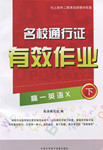题目内容
【题目】For every woman who feels like she's had to scale back her personal ambitions since becoming a mother, gold medal cyclist Kristin Armstrong has a message: Don't give up on your dreams.
She retired after winning gold in Beijing to start a family; son Lucas arrived in 2010, but then she decided to compete again in the London Olympics. She won a gold medal at last.
The decision to start training again wasn't easy. "I struggled with that a lot," she told a newspaper. “At the beginning I felt selfish, I felt like, ‘Well, I'm not supposed to be thinking of myself anymore. It's all supposed to be for my kid.’”
She faced physical challenges of getting back into competition shape after giving birth, as well. When she started racing in the spring of 2011, she was still breast-feeding; she would nurse her son, then race, then breast-feed again after the race. Her days revolved around Lucas and training.
"I feel like I'm able to do what I love to do and still manage a family and have that balance," Armstrong said. "That you have a family or a child doesn't mean that you have to stop going after what you dream of individually.”
Armstrong makes balance look easy, whether it's on her bike or as an athlete-mom. But she points out that you can't have it all without making some sacrifices. For example, don't expect a neat home—her husband, Joe Savola, who she describes as her support system and her "protector", says he's had to give up on trying to keep everything orderly at home and just accept that their living room has become Lucas's playroom. For Armstrong, she's sacrificed time with friends who had kids around the same age—there just wasn't time.
Now, she says, "That sounds like fun to me." As she heads home to Boise, Idaho, she's ready to do regular mom stuff.
【1】After Kristin Armstrong retired, she ___.
A. lived an easy life
B. moved to a new house
C. still had a great interest in cycling
D. spent much time with her kid
【2】It was difficult for Armstrong to make the decision to participate in the London Olympics because she_______ .
A. was too old to train racing
B. had to give her family much consideration
C. faced big physical challenges
D. could not get support from her family
【3】In most days of 2011, Armstrong could be described as ____.
A. a housewife and a new mom
B. an athlete and a career woman
C. a parent and a sportswoman
D. a wife and a good mother
【4】We can know from the passage that it ____ for Armstrong to keep a balance between her family and dream.
A. was quite easy B. made her feel tired
C. surprised herself D. was a hard job
【答案】
【1】C
【2】B
【3】C
【4】D
【解析】
试题分析: 本文讲述Kristin Armstrong如何平衡家庭和事业,实现自己的梦想,同时也付出巨大的努力;
【1】C 考查细节理解题。根据第一段提到For every woman who feels like she's had to scale back her personal ambitions since becoming a mother, gold medal cyclist Kristin Armstrong has a message: Don't give up on your dreams可知当她退役后坚持自己的梦想,故选C项。
【2】B 考查细节理解题。根据第三段At the beginning I felt selfish, I felt like, ‘Well, I'm not supposed to be thinking of myself anymore. It's all supposed to be for my kid.’”可知开始我觉得自己很怎么,我不要只想自己还要考虑我的孩子,我的家庭,故选B项。
【3】C 考查细节理解题。根据第四段提到When she started racing in the spring of 2011, she was still breast-feeding; she would nurse her son, then race, then breast-feed again after the race.在2011年时,她一边照顾孩子一边参加比赛,故选C项。
【4】D 考查细节理解题。根据倒数第二段提到Armstrong makes balance look easy, whether it's on her bike or as an athlete-mom. But she points out that you can't have it all without making some sacrifices看起来平衡家庭与事业很容易,但她也指出你没有牺牲是不可能的,故选D项。
考点 :人物类阅读。

 名校通行证有效作业系列答案
名校通行证有效作业系列答案【题目】写作
目前,学校存在少数考生考试作弊现象。某英文杂志社拟对此现象向中学生征文,标题是“My Opinion on Cheating in Examinations”。请根据下列提示用英语写一篇征文稿。内容要点如下:
主要原因 | 考试偏多、偏难 |
不用功、懒惰 | |
取悦父母、老师 | |
个人看法 | 作弊不对,违反校规 |
……(其他看法) |
注意:
1.短文必须包括所有内容要点,可适当发挥。
2.词数:100左右;
3.参考词汇:作弊 cheat(v. )。
______________________________________________________________________________
______________________________________________________________________________
______________________________________________________________________________